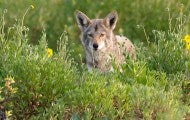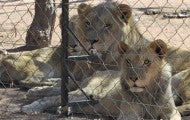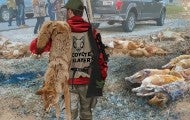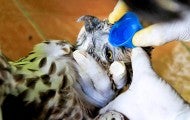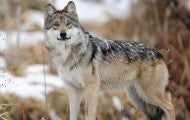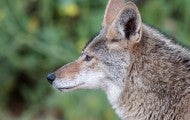Showing 9 of 9 results
Canada's annual commercial seal hunt is the largest slaughter of marine mammals on the planet. Facing harsh criticism the world over because of the hunt's cruelty and unsustainability, the Canadian government and fishing industry have spread much misinformation. Here are the basic facts about the...
If you spot a coyote in your neighborhood, relax: Most coyotes avoid people. “Seeing a coyote out during the day is not a cause for alarm, especially in the spring and summer when they’re out looking for food for their pups,” says Lynsey White, HSUS director of humane wildlife conflict resolution...

